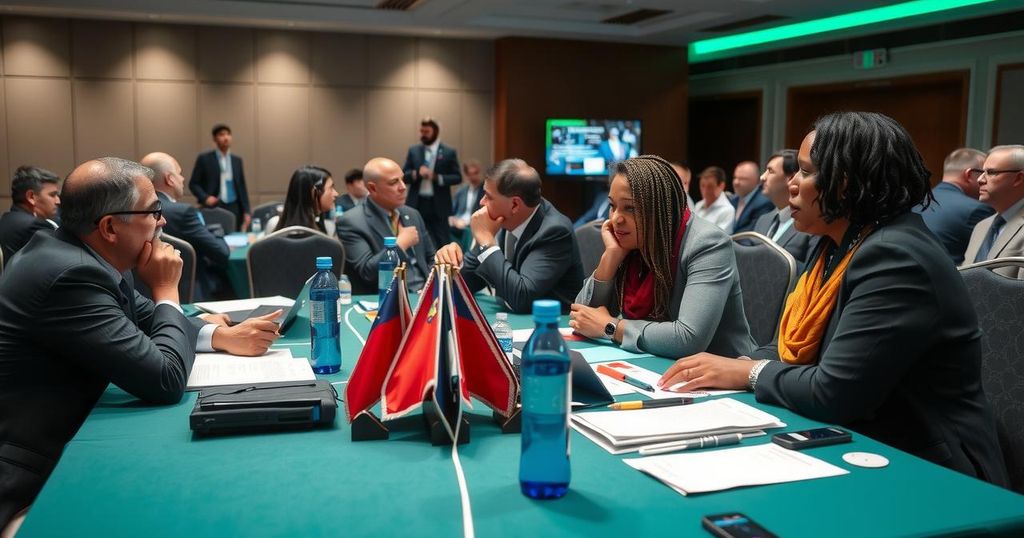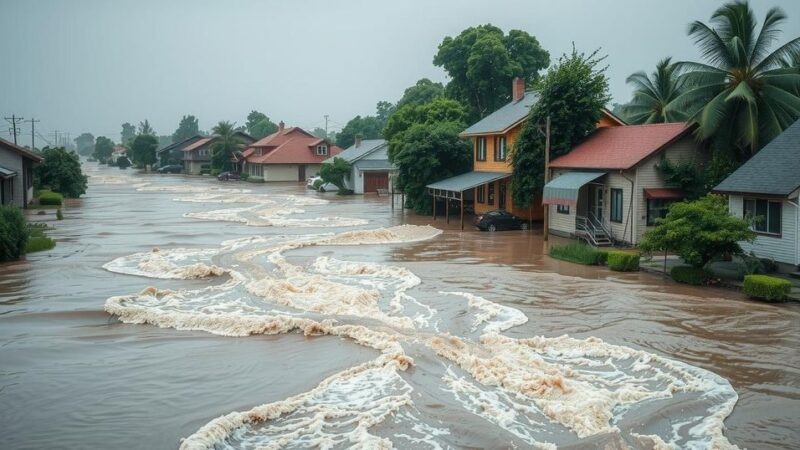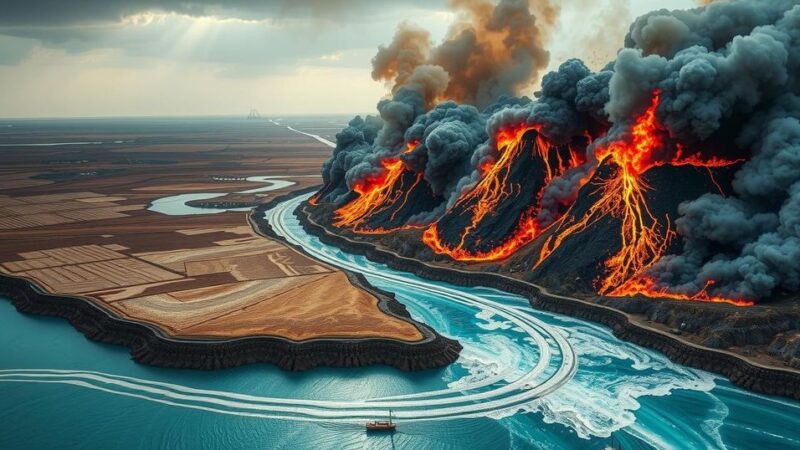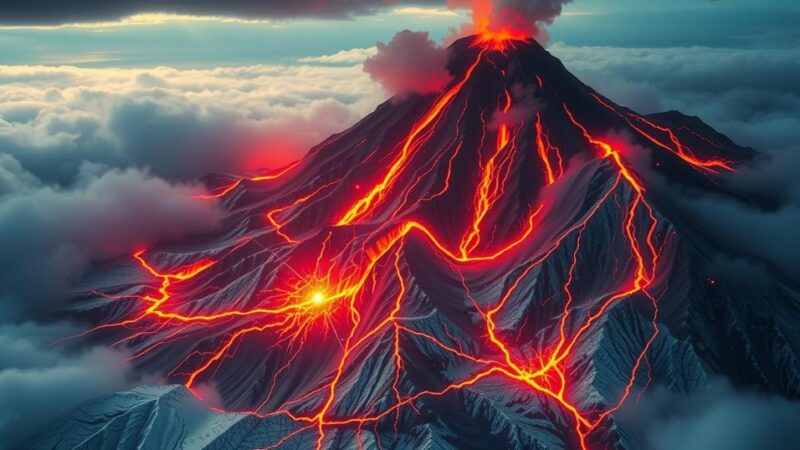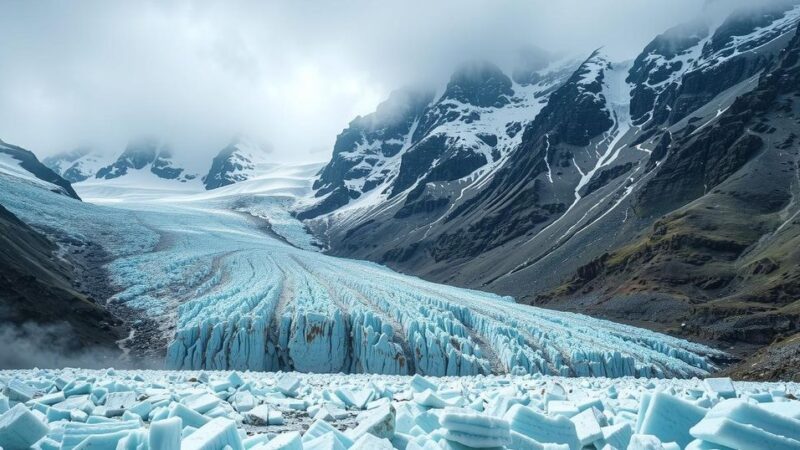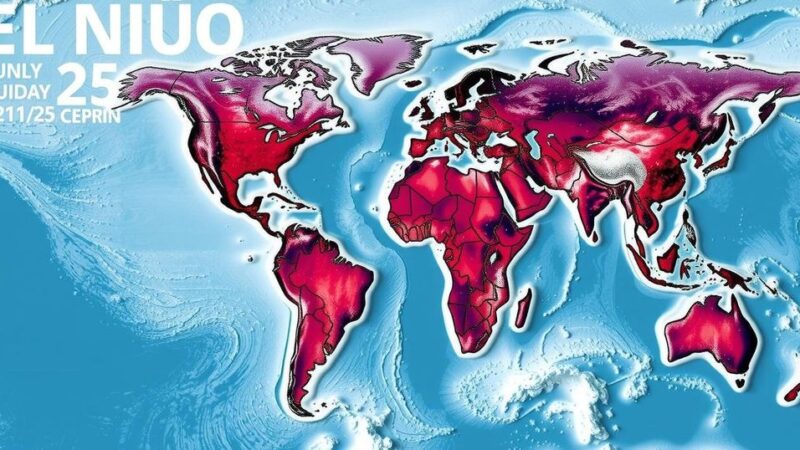The article discusses the author’s experiences at COP29, emphasizing the importance of storytelling and collaboration in climate action. It highlights the diverse perspectives shared by global leaders, the significance of narratives in shaping public engagement, and the intricate challenges faced by countries dealing with climate change impacts. The author advocates for a multi-sectoral approach to foster understanding and drive climate solutions through creative storytelling.
My recent trip to Baku, Azerbaijan, for COP29, the UN climate change conference, underscored the pressing necessity for a collaborative approach to combat climate issues. Baku, an oil-rich city, is the backdrop for the gathering of over 60,000 global leaders and experts who convene to negotiate and share knowledge on climate actions. As a member of the UNFCCC Entertainment & Culture for Climate Action Film & TV (ECCA) steering committee, I engaged with vital discussions on finance, culture’s role in climate solutions, and the impacts of climate change around the world. The diverse student cohort in my Climate School course tackles complex climate narratives, exploring how storytelling can pivot public opinion and galvanize climate action.
Stories hold transformative power in shaping societal norms and beliefs surrounding climate action. They resonate emotionally with audiences more than factual reporting, often leading to heightened awareness and civic engagement. This semester, my students expressed grave concerns regarding climate changes affecting their home countries, from rising sea levels in Mexico to devastating floods in Pakistan. Such experiences highlight the personal stakes involved in climate crises, reinforcing the necessity for robust storytelling as a tool for engagement and understanding.
The 2015 Paris Agreement calls for societal engagement through education and access to information, values we aim to promote through storytelling. The narratives we create—awe-inspiring yet grounded—challenge viewers to reconsider their relationship with climate issues. My students explored how popular culture can capture crucial moments that inspire collective agency against a backdrop of global climatic transformation. At COP29, I emphasized narratives that resonate with urgent climate realities.
Key discussions around climate mobility and displacement took center stage at the Climate Mobility Pavilion, reflecting growing global concerns over the ethics of relocation due to climate change. Educational insights from experts highlight the critical need for leaders at all levels to communicate scientific information effectively across diverse communities. My students’ readings emphasized the divergence in political acknowledgment of climate change; while some countries are proactive, others are paralyzed by bureaucratic inertia. At COP29, the challenges to achieve consensus on finance goals further illustrate this divide.
Amidst negotiations, the visible influence of fossil fuel lobbyists loomed large, raising questions about the narrative around climate action in media and film. The reluctance of major studios to address climate change directly illustrates the need to foster a cultural shift that legitimizes these conversations in popular discourse. Throughout COP29, I connected with groundbreaking leaders and engaged in collaborative storytelling, aiming to amplify voices from vulnerable communities impacted by climate change.
As my students embark on their final projects, they creatively blend climate science and popular culture to stimulate crucial dialogues about our future. This multidisciplinary approach reveals that collaboration across various sectors—education, arts, science, and policy—is paramount for developing impactful narratives. Investing in our shared humanity and creative storytelling fosters a culture of care and resilience necessary to address the climate crisis effectively.
In conclusion, the collective efforts of artists, scientists, policymakers, and citizens are required to forge empathetic narratives that motivate robust climate action. By prioritizing creativity and collaboration, we can catalyze societal transformation toward a sustainable and equitable future for all.
The article reflects on the author’s experiences and insights gained from attending COP29, emphasizing the importance of collaboration and storytelling in addressing climate change. The conference gathered leaders and experts to discuss global climate strategies and their implications on various communities worldwide. The author, involved in climate education and culture, underscores the role that narratives play in mobilizing public engagement and shaping climate discourse. The discourse also highlights the contrasting realities faced by different nations concerning climate impacts and responses, advocating for a unified approach to climate action that incorporates diverse perspectives and innovative storytelling.
In summary, the challenges posed by climate change require immediate and collaborative responses that harness the power of storytelling and cultural narratives. The diverse insights exchanged at COP29 bolster the argument for a multidisciplinary approach in tackling climate issues systematically. Building emotional connections and fostering dialogue through creative means can inspire a collective movement towards effective climate action, ensuring that the stories of impacted communities echo in the global arena, ultimately leading to meaningful change.
Original Source: news.climate.columbia.edu

